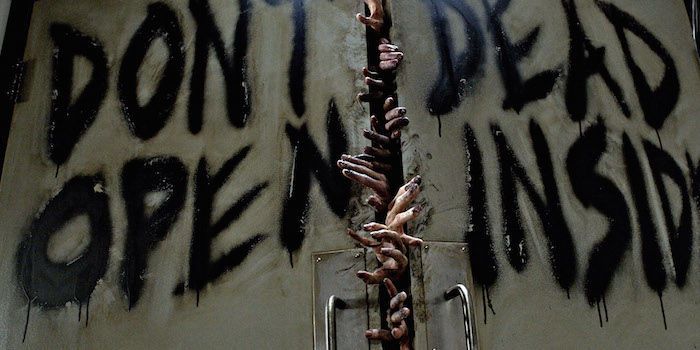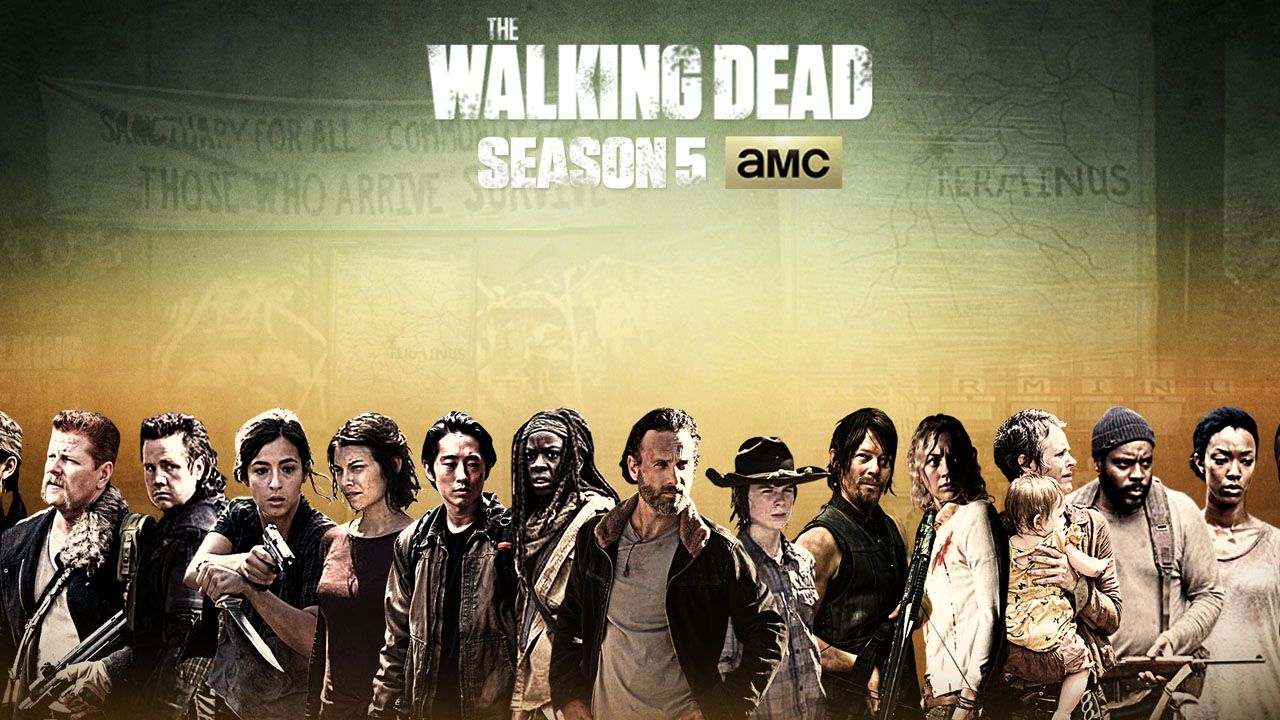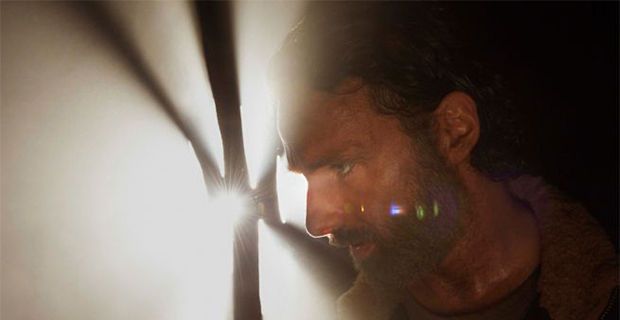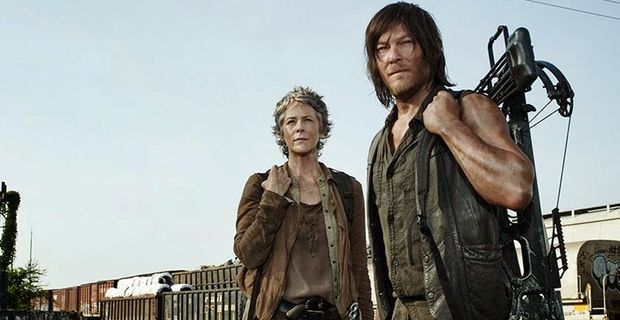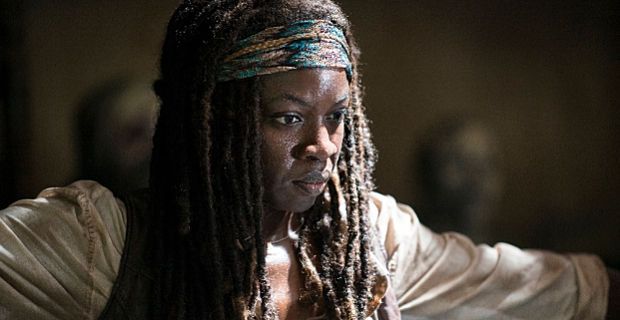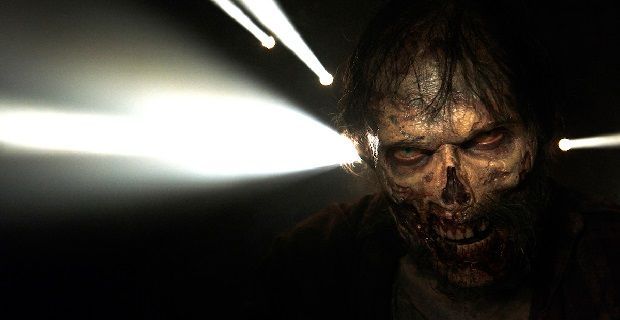Ever since the introduction of DVRs and online streaming services, viewers have enjoyed unparalleled flexibility in both how and when they watch television (as well as movies). Throughout the '80s and '90s, timed VHS recordings allowed consumers to record one or two programs - in the event that a viewer was unable to watch live. However, modern TV watchers are privy to a significantly more user-friendly batch of options - permitting a viewer to catch up on weeks of television with only the push of a few buttons. Similarly, on-demand film releases have drastically shortened the amount of time between when a movie hits screens and when it can be viewed online - some even arrive on digital platforms the same day as their theatrical release.
As a result, with so many entertainment programs and an ever-expanding set of viewing options available to consumers, movie and TV fans are no longer watching the same high-profile content at the same time. Subsequently, we are forced to navigate an increasingly precarious spoiler landscape - where one clumsy move might mean being spoiled on a major movie/TV event, or potentially ruining the surprise for someone else. Previously, we've discussed The Truth About Spoiler Alerts and How to Avoid Movie and TV Spoilers, but in recent months, a new threat has begun plaguing unsuspecting entertainment lovers - official studio and network social media accounts.
Most hardcore TV and movie watchers have become savvy about avoiding spoilers online - staying off social media following the airing of a show they intend to watch or - at the very least, unfollowing/hiding especially inconsiderate friends and family members on Twitter and Facebook. But what if the last person you'd ever expect to ruin a surprise is also the first one through the gate blurting out a high-profile movie or TV spoiler?
-
Official Spoilers
In recent weeks, there has been a surge of official studio and network social media accounts that clumsily (or intentionally) revealed major secrets only minutes after air (or a few short days after theatrical release) - long before the majority of fans even had a chance to experience their programming fresh.
Recently, American viewers were put-off when the (understandably) Britain-based official BBC Doctor Who Twitter spoiled a major reveal in the penultimate episode of season 8, and Grey's Anatomy viewers who choose to follow Shonda Rhimes were shocked when the creator revealed a key plot beat in her own show ahead of the season 10 premiere. Now, AMC's The Walking Dead is responsible for, arguably, the most egregious (and widespread) social media spoiler so far: The network posted an image to Twitter and Facebook revealing the death of a major character in the mid-season 5 finale, just minutes after the show aired on the East Coast. Consequently, anyone west of the Eastern and Central Time Zones that "likes" or "follows" The Walking Dead on Facebook and Twitter stood a good chance of being spoiled by the very network that produces the show.
Doctor Who: Missy's true identity was revealed early for American viewers
-
In case you missed it (and don't mind being spoiled on The Walking Dead), click to see AMC's now infamous tweet - HERE.
-
While some fans might have dismissed the spoilery image as an innocent social media blunder, AMC handled backlash differently across various platforms. Specifically, they deleted the image off of Facebook following widespread and downright vehement replies from angry viewers (only to repost hours later) but left the image in their Twitter feed - where they were taking slightly less heat.
To be fair, we can acknowledge that Twitter is (by design) a place for breaking news and cultural reactions, whereas Facebook is most often a platform for collecting and sharing past content rather than moment-to-moment updates. Still, it's hard to believe that AMC's unmindful posting on both social media platforms was simply the product of an over-zealous intern on the East Coast - instead of a calculated effort by AMC's marketing department to capitalize on a buzz-worthy topic.
In a world where bad press can actually raise awareness for a film or TV show - producing overall higher viewing and engagement figures - it's quite possible that the network simply rolled the dice, hoping that whatever benefit they would receive by getting the show trending on social media (as a must-see event) would outweigh any downside from existing fan backlash.
The Walking Dead: For many viewers, AMC spoiled the death of one of these characters.
After all, Hollywood is no stranger to spoiling major reveals in order to raise interest in a film or TV show (just look at the majority of movie trailers), and for weeks Walking Dead producers had been talking-up a shocking moment in the mid-season 5 finale. AMC knew the episode was going to elicit a strong reaction and likely decided they needed to capitalize on the buzz as soon as possible - potentially figuring it would be better to beg for forgiveness after the fact. To that end, 24 hours later the network openly apologized on both Facebook and Twitter for spoiling the episode, but if it was a calculated marketing stunt rather than a brainless blunder, the strategy paid-off - since The Walking Dead mid-season 5 finale earned a new series ratings record.
Here's the full quote from the AMC - promising to be more sensitive to all fans going forward:
"We heard your feedback to last night’s post, and we’re sorry. With zero negative intent, we jumped the gun and put up a spoiler. Please know we’re going to work to ensure that, in the future, possible spoilers by official AMC social feeds are killed before they can infect, certainly before the West Coast (U.S.) broadcast of The Walking Dead. As always, thank you for watching, and keep the comments coming. We appreciate all of your support. #RIPSpoiler"
Either way, there's no doubt that fans are seeing an increase in official network and studio accounts attempting to stoke social media reactions - and converse with viewers in real time. Whereas Twitter and Facebook show/movie pages used to be relatively static, updated as news was posted to network and studio websites, with occasional retweets or shares of relevant external content, official pages are now aiming to become landing platforms for fan commentary and community.
After all, if East Coast watchers didn't get to talk about the mid-season 5 finale on the official Walking Dead social media pages, they'd simply have gone somewhere else to express their shock and heartbreak (possibly the comment section of our review). From a business standpoint, it's understandable that AMC would want to capitalize, and join in, on that conversation - but at what expense? From a consumer standpoint, AMC undermined the impact of their own event television moment, for a significant chunk of Walking Dead fans, by trying to eat their cake (capitalizing on buzz) and have it too (ensuring heart-wrenching storytelling for all fans).
-
Finding The Right Balance
The problem is further compounded by varying premieres and box office debuts for TV and films around the globe - in a world that has become increasingly smaller by way of Internet technology. Despite being based out of America, Marvel Studios has made a habit of releasing most of their blockbuster comic book adaptations early in international markets - forcing North American viewers to avoid online spoilers for roughly two weeks. Similarly, while many West Coast viewers were upset by AMC's initial mid-season 5 spoiler post, fans around the world were still spoiled when the network reposted the image hours later (following the West Coast airing but before the episode was shown in select international markets). No doubt, studios and networks have very specific reasons for debuting content when/where they choose - but increased connectivity and access to programming around the world also means that marketing departments must evolve along with their interconnected global audience.
As suggested by AMC's apology to viewers, networks and studios will continue to find a balance between promoting their products and upsetting their core fan base. However, as we've previously suggested, viewers also have a responsibility to protect themselves - given that everyone has a different opinion regarding how long spoilers should be held-back. Some viewers are willing to accept that friends and family will hit Facebook a couple of hours after a show airs, but would be upset to see an official movie or TV account posting spoilers less than one full weekend or day after premiere, respectively. Nevertheless, others see TV and movie watching in the same way as sporting events - where those who are not watching live only have themselves to blame if they get spoiled.
Since there are no universally-established rules for TV and movie spoiler etiquette, any insight is little more than subjective perspective and personal opinion. Using the sports comparison, some viewers could suggest it is harder to be spoiled on the outcome of a football game - given that it's easier to follow the broad strokes of a game via mobile apps and social media - whereas a show like The Walking Dead relies on weeks worth of character development and onscreen drama to culminate in a single moment of surprise and emotional payoff. Yet, die-hard football viewers would likely point out that true fans don't simply want the broad strokes, but with so many games overlapping, sports lovers have never had the luxury of isolating their experience. Highlights from other match-ups are played in the middle of a game, while scores scroll across the bottom of the screen - making it nearly impossible to avoid off-channel "spoilers."
That said, with an ever-expanding catalogue of TV and movie options, entertainment lovers are now faced with a similar dilemma. While The Walking Dead and Game of Thrones, among a select few others, still enjoy widespread event TV status, more than one high-profile show airs every single night. Given that the average American TV viewer watches roughly 4 hours of programming per day, it's impossible to simply rely on the "stay off social media" approach to avoiding spoilers - especially now that official network and studio accounts are getting in on the conversation.
NEXT PAGE: What You Can Do to Avoid SPOILERS
-
-
What You Can Do About It
There's no doubt that avoiding the Internet and watching as soon as possible is still the best way to ensure you do not get spoiled on the shows and movies you care about most. For that reason, it's more important than ever that spoiler-sensitive TV and movie viewers decide how they want to utilize social media - and be prepared to accept the consequences.
As indicated by AMC's mistake, it's impossible for consumers to eat their cake (get the latest news and behind the scenes updates) and have it too (remain entirely unspoiled). Users who want the benefit of following news and fun updates from their favorite movie and TV productions can always setup lists and filters in their social media accounts to help avoid specific content (until they are ready for it) and, as a last resort, there's always the option to "unlike" or "unfollow" accounts and users that prove exceptionally problematic.
Similarly, with the amount of programming we consume, viewers should also make informed decisions about which shows and movies are most important to them, then pay attention to when each one actually premieres (in other countries or local time zones), and plan their interactions accordingly. For most fans, there are probably only one or two shows that they genuinely do not want to see spoiled at all - followed by several others that they might only prefer not to be spoiled. Determining which shows and movies are non-negotiable should help viewers find a better overall balance - so that they do not need to avoid social media every single weekend and night.
This isn't to say that official TV and movie social media accounts - not to mention marketing in general - should have free reign to post whatever/whenever they want - since there's alternate (read: smarter) ways to engage viewers and get content trending.
However, ultimately, the buck stops with each of us. In a time when the simple flash of a spoilery image on Twitter can't be unseen, there's certainly no downside to being conscientious (and at key times, dismissive) of the social media content that is being pushed into our faces.
NEXT: Listen to the Editors Discuss TV Spoiler Etiquette
-
Follow me on Twitter @benkendrick for movie, TV, as well as gaming news - and let me know your strategies for avoiding TV and movie spoilers.

